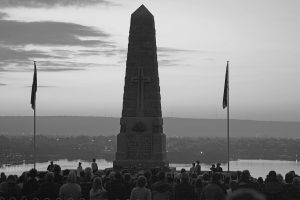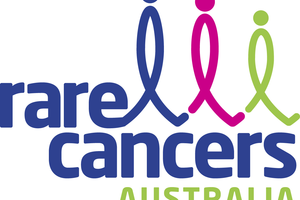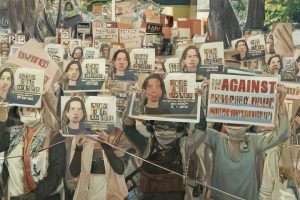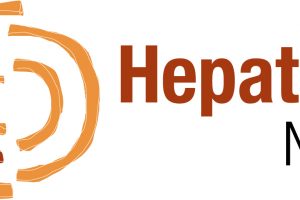Ghillar, Michael Anderson, Convenor of the Sovereign Union, last surviving member of the founding four of the Aboriginal Embassy and Head of State of the Euahlayi Peoples Republic provides an insight into the proposed ‘Indigenous voice co-design process’ based on assimilation, which is in opposition to First Nations voices on the assertion of sovereignty.
First Nations true Voice is the Sovereign Voice of the owners of this ancient land who hold the oldest continuing culture on earth. The current ‘Indigenous voice co-design process’ is a cynical assimilationist affront to our right to self-determination and self-governance. It has been developed by the National Indigenous Australians Agency, NIAA, which was established by the Crown as an Executive Order signed by the Governor-General on 29 May 2019. https://www.legislation.gov.au/Details/C2019G00474.
Many grassroots people are disenfranchised from all of this. Many of our people do not want the ‘organisations’ being trustees and making decisions on their country, as so often these organisations do not represent grassroots’ aspirations. Not everyone has seen the report on the ‘Indigenous Voice’. Even the NIAA, National Indigenous Australians Agency, website does not make the report available. All there is an uninformative ‘factsheet’ for the ‘Indigenous voice co-design process’. You then have to go to: https://voice.niaa.gov.au to find the resources for the indigenous voice co-design process.
Hannah Cross reported in The Guardian on 15 January 2021 with her article ‘Indigenous voice to parliament to have no veto power under interim plans’:
“After a year of discussions and consultations between three advisory groups selected by Minister for Indigenous Australians Ken Wyatt and Indigenous Australians across the country, the report proposes two models for a National Voice – both without any veto powers.
“The report says the National Voice would only be able to consult with Parliament and the Federal Government. It would neither be able to overturn or veto any policies nor would it be able to prevent any laws coming into force.
“The Federal Government would be “obliged” to consult with the Voice on a “very narrow range of matters” including Native Title, race and racial discrimination and would be “expected to engage more generally” on broader issues that significantly affect Aboriginal and Torres Strait Islander peoples.”
With this being the case – what’s the point? More assimilation.
Now is time to roll out our own solutions, from our sovereign stand point. We know the story of the evil past, now we must address it and effect solutions. Millions and millions of dollars are being spent on band-aid services. For example, in one area of South Australia 252 service providers operate for a population of approximately 3500. This does not create capacity for the People to take ownership of their programs. All it does is further entrench dependency and line the pockets of bureaucrats. Our people are over being managed. If we are to make mistakes, like anyone else, we will learn from them. We mainly make mistakes because we are trying to fit white non-Aboriginal concepts into ancient First Nations societies.
We are who we are. Assimilation policies have failed and are still failing. We need the oppressor to stop dictating to us, to move aside and let us take control of our own affairs with sufficient resources to do so as First Nations and not as a single mish-mash ‘Indigenous’ society. We are NOT an homogenous society. As we keep stressing, we are many sovereign First Nations. We need to execute our own solutions on a sovereign Nation basis. We have had orderly governance systems in place since before 1788 and our problem now, and has been for the last 233 years, is that the colonisers want to change us to be like them through assimilation.
‘Otherness’ is not acceptable to the occupying power. This is where the problem lies.
Because of the underlying bipartisan assimilation policy, grassroots will constantly resist. Too often when we become successful in our own way of governance and meeting our own needs, our way, the funding is cut off. The colonisers tight control of the wealth and cashflow, maintains the First Nations’ dependency and dictates the politics of poverty.

This why we must take the steps to break away from this tyranny of dominance and oppression.
As we describe on our website www.sovereignunion.mobi, one way to begin is for First Nations to declare Independence through a Unilateral Declaration of Independence (UDI) which is the internationally recognised process to free people from tyranny and humanitarian crises. The first steps in this process to commence asserting independence are to map boundaries; set governance in place; design and fly your own flag and work from there.
It appears on the surface that Ken Wyatt MP, Federal Minister for Indigenous Australians, is soothing the pain of the occupying State, which knows very well that the constitution is only a system to assist in governing their occupying society, but it does not apply to us as First Nations Peoples. Even the Australian legal system acknowledges that we are outside of the constitution as in last year’s High Court cases of Thoms and Love, which ruled that Aboriginal people are non-aliens and non-citizens, therefore independent. So, if we are not citizens, their law and constitution does not apply to us. Instead we have our own ancient laws and customary practices which we are subjected to. These factors have never changed.
Similarly, we cannot win native title on a hybrid type law and customary practices. We have to prove we have maintained connection to our Country under our ancient Law and customary practices. Whether they like it or not, this is recognition of us exercising and maintaining a sovereign inherent right to this day, as the true Sovereign Nations, who own these lands and waters and have had allodial title to these lands before and after 1788.
The proposed structure for an Indigenous voice to parliament is so flawed so many reasons. A key flaw is that ‘organisations’ such as the Prescribed Body Corporates (PBCs) and community-based organisations are essential service delivery organisations. They are not political institutions, e.g. medical services provide medical services; legal services provide legal services; NSW Land Councils are trustees for land that it legislated as Aboriginal land; Northern Land Council, Central Land Council and North Queensland Land Council have now become body corporates which facilitate Native Title claims. The Land Councils were created for that purpose because local communities within these regions operated on Land Trust lands, or in the case of Queensland became DOGIT reserves and ultimately local shires.
The modern-day Prescribed Bodies Corporate (PBSs) are institutions governed by Federal Native Title legislation. These organisations do not have the capacity to be self-governing and self-determining because of the statutory rules that govern them.
The organisation of Murdi Paarki in NSW is a loose network consisting of locally-based chairs of working groups and these working groups are unconstituted and our people attend them only if there is an issue of interest for them. These unconstituted groups then make up Murdi Paarki, which is funded by the Commonwealth to provide services, such as housing, but now could become part of the ‘Indigenous Voice’. The creation of these regional voices by the Minister’s personally selected elite are so far removed from the true grass roots thinking and their aspirations.
The Federal government and the Labor opposition would be much better served if they take off their blinkers of denial. Yes, there is a way that we can share this country together but it will take time and First Nations aspirations must be paramount. We need to have honest and robust discussions about the political future of this Country, which must include First Nations Peoples in all levels of decision-making roles, after First Nations have established their own working governing councils. First Nations Peoples have been continuously demanding our rights to be self-determining, to maintain our own national identities and our boundaries must be registered and marked just like local government councils.
Back in the 1980s an optional process was talked about by the National Aboriginal Conference’s (NAC’s) treaty framework. First Nations’ boundaries would become the new local government areas and First Nations would facilitate for non-Aboriginal representation within that governing council.
In the 70s and 80s New South Wales did in fact appoint an inquiry to look into their ability to have reserved seats within the NSW State parliament for Aboriginal people. I would recommend to students of history to seek out this report and its recommendations.
In 2009 I was invited to participate in discussions on decolonisation hosted by Zimbabwe in Harare and organised by the African Union (AU). It was attended by African heads of government and foreign ministers. One of their conclusions was: We have successfully decolonised regarding owning our own land but we don’t control our own economy because it is dictated to by the banks of the colonial regimes. There is a big lesson for us to learn from this African experience. It can help us understand why we are currently subjected to the ‘politics of poverty’ and the tight control by governments of First Nations’ royalty monies from the exploitation of our natural resources.For the NIAA to invite all Australians to ‘co-design’ an ‘Indigenous voice’ is simply absurd, a dictatorship and tyranny by the majority. (The writer is Ghillar Michael Anderson, Convenor of Sovereign Union of First Nations and Peoples in Australia and Head of State of the Euahlayi Peoples Republic)
[End]




